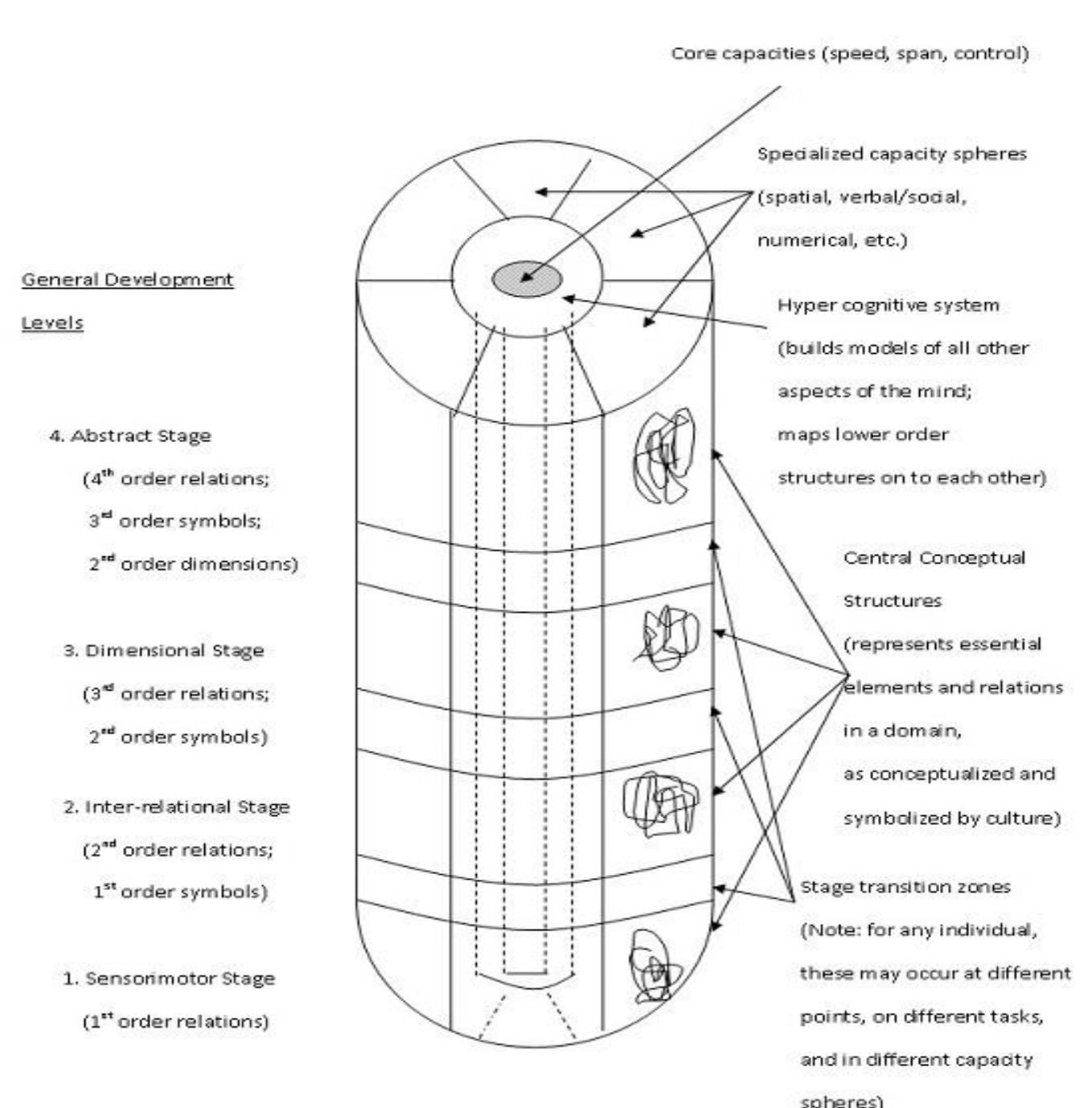Key research themes
1. How do Neo-Piagetian theories explain domain-specific cognitive development and variability in learning progress?
This research activity focuses on extending Piaget's original theory of stage-wise cognitive development by incorporating domain-specific cognitive processes, individual differences, and mechanisms that explain variability in learning rates and cognitive performance across distinct knowledge areas. Neo-Piagetian theories address limitations in Piaget's universal stage assumptions, integrating mental resource constraints such as working memory and attentional capacities to explain differential domain expertise and developmental trajectories. Understanding these aspects is critical for refining developmental models and has practical implications for educational interventions tailored to children's specific cognitive profiles.
2. What is the role of working memory capacity and executive function in the development of cognitive schemes and conceptual understanding according to Neo-Piagetian theories?
This body of research investigates how domain-general cognitive resources, especially working memory capacity and executive functions, influence the acquisition and complexity of cognitive schemes, particularly in numerical cognition and representational tasks. Neo-Piagetian frameworks propose that increases in working memory capacity enable children to coordinate more complex structures and facilitate flexible, higher-order thinking, serving as a key mechanism for cognitive development beyond stage-related maturational changes. Clarifying this relation helps bridge cognitive developmental theory with neuropsychological constructs and informs pedagogical strategies for enhancing learning outcomes.
3. How can semiotic and activity theory perspectives complement Neo-Piagetian approaches in explaining cognitive development beyond brain-centric and mentalistic models?
This research direction explores the integration of semiotic frameworks derived from Peirce’s philosophy and cultural-historical activity theory to conceptualize learning and cognitive development without relying solely on brain-based or mentalist accounts. It emphasizes the role of sign processes (semiosis), embodied agentive activity, and socio-cultural mediation in shaping psychological processes, offering a non-linear, ecological, and interactional perspective on development. These approaches provide alternative conceptual tools to Neo-Piagetian theory, focusing on the dynamic, contextual, and mediated nature of cognition critical for transdisciplinary developmental research.












